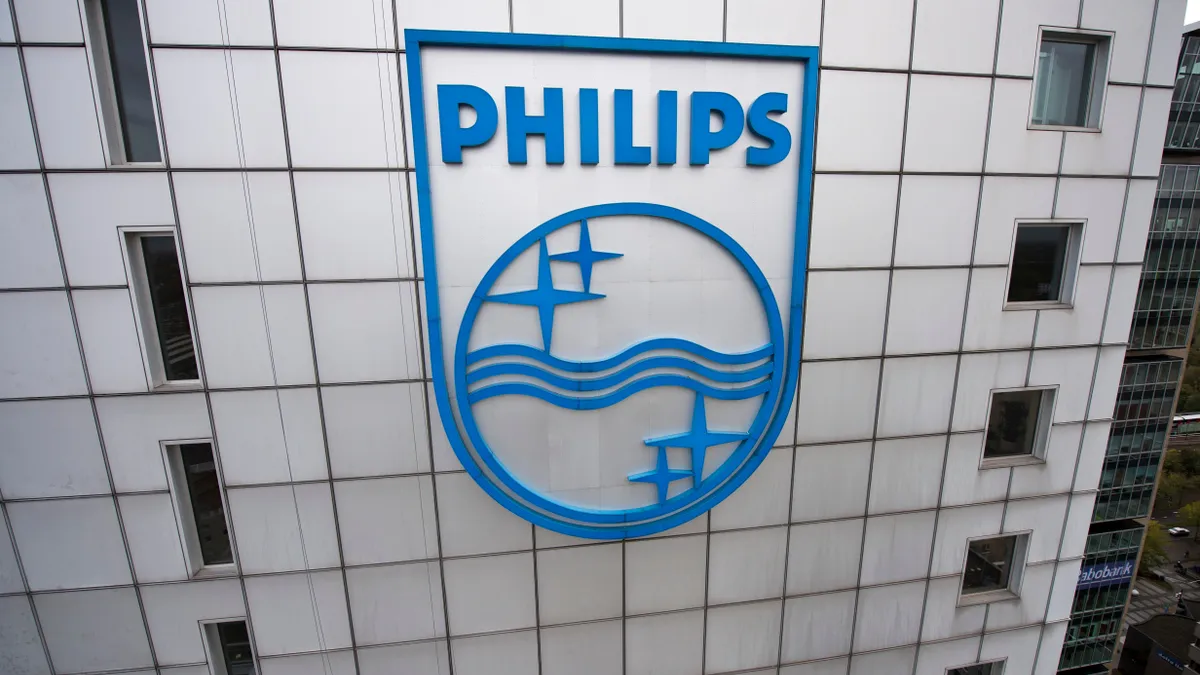Dive Brief:
- Philips has increased the number of devices impacted by its recall of sleep apnea and ventilator machines to 5.2 million globally after expanding the scope of the recall to include older devices.
- The Dutch medtech also added an additional 225 million euros ($256 million) in costs associated with the recall "due to the higher volume of devices now requiring remediation and increased supply costs," according to a Wednesday announcement. The 5.2 million total affected devices are up from the 3 million to 4 million range given when the recall was first announced in June.
- Philips also announced the company will bring in sales of approximately $5.6 billion in the fourth quarter, about $398 million below previous expectations. The company said the decrease is primarily due to recall costs, but also to the supply chain challenges that are impacting medtechs across the industry. Philips' shares were down by over 15% Wednesday morning.
Dive Insight:
Philips' recall of millions of sleep apnea and ventilator devices was one of medtech's biggest stories last year. After announcing in April that the company identified potential health risks associated with certain machines, Philips ultimately launched a recall of 3 million to 4 million devices in June.
The FDA later gave the recall a Class I designation due to the potential risks to patients.
Devices were recalled due to the breakdown of foam used to dampen the sound of machines. Once the foam broke down, users could inhale or ingest the particles, potentially being exposed to toxic chemicals.
Philips said in an emailed statement that the company has put about $825 million — including the $256 million announced Wednesday — into the field action provision for the recall to "substantially" increase the company's production and repair capacity.
The medtech was criticized for its handling of the recall and faces multiple lawsuits, with some users claiming the company did not contact them when the recall was initiated.
Philips began repairing and replacing devices in September. According to CEO Frans van Houten, Philips has produced 1.5 million repair kits and replacement devices, about 700,000 of which have reached customers.
While the recall was a substantial hit for Philips, it was a boost for rival ResMed, which said in August that the opportunity was as much as $350 million. However, supply chain issues may limit the actual dollar amount ResMed can add to its revenues.
ResMed's stock price was up nearly 3% Wednesday.
Along with the increased recall costs, supply chain issues also dragged on Philips in the fourth quarter.
"We continue to see good demand for our innovative products and solutions, resulting in an all-time high order book," van Houten said. "However, we faced significantly intensified global supply chain issues across our businesses, in addition to customer postponement of equipment installations in hospitals."
The company expects charges in the quarter to total about $478 million, or about $358 million more than expected, primarily due to the recall.
Overall, Philips expects 2021 sales to be about $19.6 billion, approximately 1% below previous expectations.











